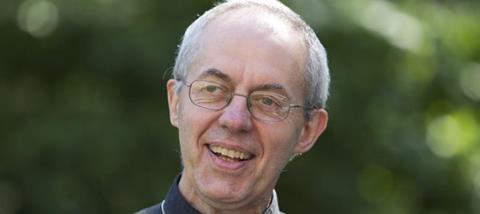Yesterday Wonga announced it is going into administration. Andy Walton explains how the Church has been an influential voice in the campaign against the business

Five years ago in the age before Brexit and Trump dominated discourse, during that hazy mid-summer lull known as silly season, an unlikely story dominated the headlines.
The recently appointed Archbishop of Canterbury Justin Welby had given an interview to a political magazine. Nothing unusual there – his role involves being a member of the House of Lords. Tucked away in a short paragraph was an answer to a question, off the cuff, which ended up becoming the story.
When asked about a conversation he had with Errol Damelin, the chief executive of Wonga, Welby reported, "I said to him quite bluntly 'we're not in the business of trying to legislate you out of existence, we're trying to compete you out of existence'".
It blew up. All of a sudden, as far as the media was concerned, the Archbishop had declared 'War on Wonga'.
A day later, when the Church Commissioners were found to have a small, arms length investment in the payday lending company, the story rolled on.
Now, five years on, Wonga is on its way out. The much-maligned payday lender is in administration.
So, was it the ‘Church wot won it?’
The Church was a key player in Wonga’s demise, and in the struggles faced by other non-ethical lenders. Three factors have marked the Church’s war on Wonga, which has spread well beyond the Church of England to encompass all sorts of denominations and churches across the UK.
Firstly, Archbishop Welby was one of the leading national figures to draw attention to the way in which payday lenders were preying on people with precarious finances. Since the crash of 2007/8, payday lenders had expanded their operations. Technological advances had made credit easier and easier to offer. No longer just the preserve of doorstep loansharks, payday lending was marketed with slick precision. Welby saw through the façade, though, and called it out for what it was – old fashioned usury – the biblical word for charging of excessive interest. He was recalling the Hebrew prophets and the way in which they railed against unjust financial arrangements.
The Archbishop was prophetically calling our society to pay attention to the unjust methods being used by the payday lenders. He helped to lead a rising tide of criticism from the Church and wider civil society which turned the tide against Wonga.
Secondly, the key legislative action which eventually brought Wonga down was a cap on the total cost of credit. Called for by Citizens UK (an organisation with many churches in membership), the campaign for a cap grew rapidly in 2013/14. Until that point, the UK was one of the only developed economies which didn’t have a cap on the cost of credit. It meant lenders were able to fleece customers of amounts vastly more than they’d originally lent.
On 1st January 2015 a group of us, led by the Bishop Of Stepney (who chaired the Just Finance Foundation – the Church’s umbrella group for building a fairer financial system) celebrated the government’s introduction of a cap. We stood on the steps of Wonga HQ, wearing caps, and thanked the government for its action, which called the lenders to respect the spirit of the law.
Thirdly, the Church has helped to lead the way in proposing alternative models of lending. Credit Unions have been supported by churches and have begun to expand and professionalise. Innovative peer-to-peer models have begun to be explored, while ethical alternatives to the payday lending model have also been incubated by churches.
The campaign has been done in partnership with those of other faiths and none. MPs such as Stella Creasy deserve a large amount of credit for keeping the issue in the headlines. Yet it’s hard to argue that the changes would have happened without the Church. Using the Hebrew scriptures to call for justice wasn’t just a nice backdrop to the story. We were responding to real human misery and horror stories of what payday lending actually did to people.
It’s a great example of what the Church can achieve when we act together and with clear moral purpose. There’s still much work to be done to get a fair financial system. But the Church can, and must, be a part of that new world being brought to fruition. As the poet and theologian Wendell Berry once said, “there is much good work to be done by every one of us and we must begin to do it.”





































